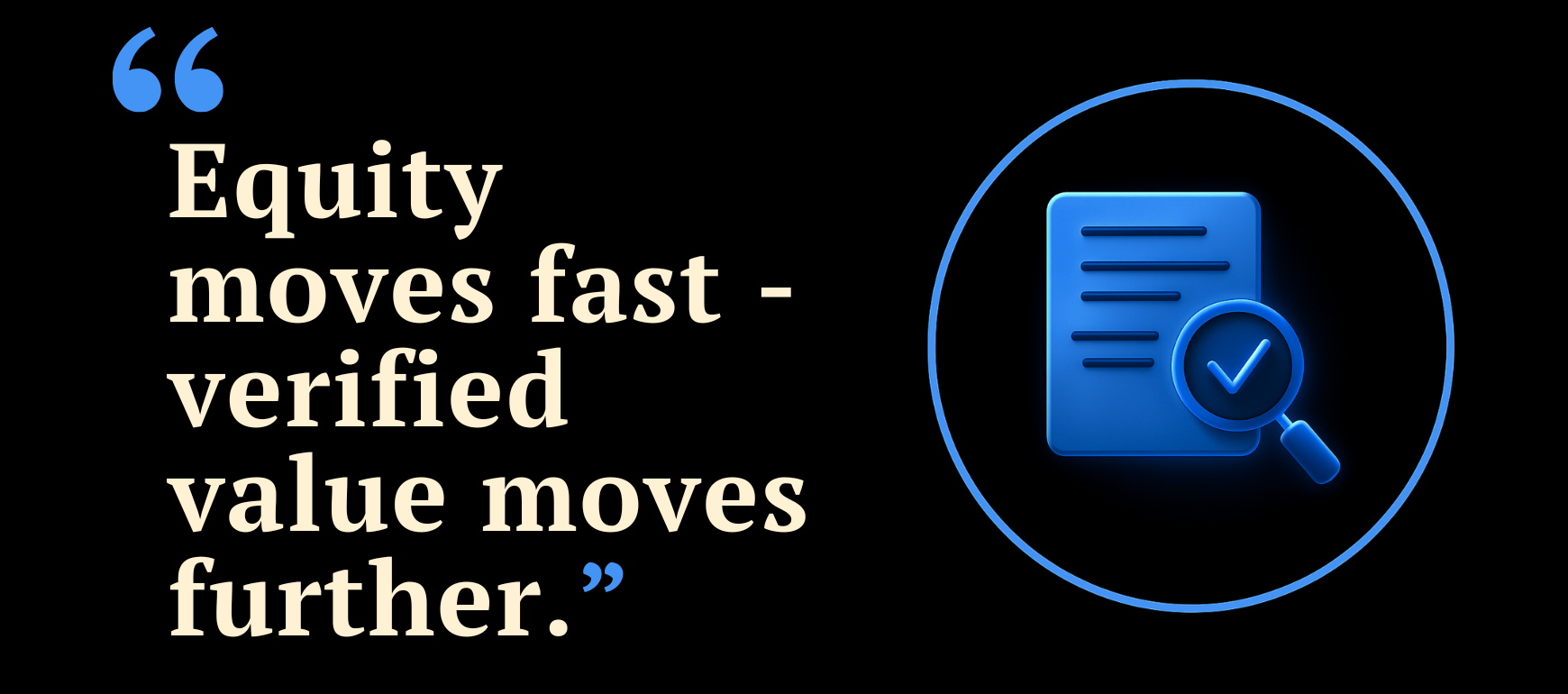Understanding Why Diligence Defines the Deal
Domain-for-equity transactions occupy a rare intersection between brand strategy and corporate finance. They require founders to think like both marketers and investors, since the exchange involves an intangible asset that influences trust, discoverability, and long-term enterprise value. Due diligence transforms what could be a speculative purchase into a structured, defensible investment. It reduces uncertainty, builds investor confidence, and prevents later disputes over value or control.
Equity is expensive currency. Before offering it for a domain name, founders benefit from confirming that the asset being acquired truly advances the company’s strategic position and can be safely integrated into its intellectual property portfolio. When diligence is handled properly, it replaces assumptions with evidence and turns a creative brand decision into a measurable business move.
Establishing Clear Ownership and Transferability
Verifying ownership stands as the first and most critical step. Many founders discover too late that the party offering the domain name is not its lawful holder or that title is fragmented between investors, brokers, and privacy-protected registrants. A registry lookup provides an initial signal but rarely the full picture. Formal confirmation requires documentary proof of uninterrupted chain of title, registrar records showing the same legal entity across transfers, and absence of any trademark claims.
In cases where the domain name is held through an intermediary, founders should ensure that the seller has documented authority to transfer rights. Apply comparable scrutiny when purchasing digital assets, using frameworks that confirm custody and chain of control - no equity should move until ownership risk is fully eliminated.
Assessing Strategic and Economic Alignment
The most valuable domain names extend beyond memorability; they shape how markets perceive a company’s authority and scale. Due diligence therefore involves assessing strategic alignment rather than just aesthetic fit. Founders can model potential impact by examining historical data on direct navigation, branded search volume, and user recall. A measurable lift in these metrics often signals lower future marketing spend and stronger unit economics.
When a domain name clarifies a company’s category, it can enhance investor narratives and increase pricing power without any additional advertising cost. Evaluating that potential before signing a term sheet ensures that equity exchanged reflects not aspiration but tangible marketing leverage.
Clarifying Valuation Logic
Valuation sits at the heart of every equity negotiation. The parties must agree not on absolute precision but on transparent reasoning. Domain name valuations often reference three complementary approaches: comparable market sales, relief-from-royalty analysis, and performance-based modeling.
Comparable sales reveal how similar names have traded in public markets, offering a practical reference point. The relief-from-royalty method estimates the marketing rent a company avoids by owning rather than licensing the name, an approach recognized in financial reporting for intangible assets. The performance model links valuation to measurable effects on conversion and brand search. Combining these perspectives produces a rational range that founders can use to defend the equity portion allocated.
Reviewing Legal, IP, and Compliance Factors
Every domain transaction carries implicit legal obligations that mirror those in larger asset acquisitions. Due diligence therefore extends to intellectual property checks and compliance verification. Founders should confirm that no active trademarks overlap in a way that could create confusion or future disputes. Agreements must include representations that the seller has full authority, that the asset is free from encumbrances, and that all prior use has complied with registry rules.
Tax implications deserve equal attention. Some jurisdictions treat domain transfers as taxable events while others classify them as capital contributions. Early consultation with counsel avoids surprises during later funding rounds or audits. Documenting these points in a short diligence memorandum also accelerates investor review when equity rounds reference the transaction.
Structuring Equity and Vesting
Once valuation and legal status are established, structure determines how interests remain aligned. Founders can choose blended models where part of the consideration is cash and part equity, with the equity portion vesting upon milestones such as revenue thresholds or product launches. Vesting creates shared commitment and ensures the seller remains incentivized for the domain’s success.
Ensuring Safe Escrow and Closing
Escrow functions as the safeguard that turns intent into execution. Reputable intermediaries or marketplaces specializing in digital assets should manage transfers, releasing funds or equity only after technical verification confirms successful change of ownership. Clear closing protocols - including registrar confirmation, DNS validation, and screenshot documentation - eliminate ambiguity.
Timing also matters. Some extensions process transfers faster than others, and each registrar enforces unique security procedures. Negotiating those mechanics in advance prevents last-minute disputes or perceived breaches of trust.
Key takeaway
Due diligence converts a speculative exchange into a disciplined investment. For founders, it safeguards the cap table, strengthens investor confidence, and transforms a single domain into a defensible corporate asset. Equity traded without diligence risks dilution without return; equity traded with diligence can become one of the most accretive marketing investments a startup makes.
Own a great domain or need one for your next big brand?
DomainsForEquity.com connects founders, investors, and domain owners to explore creative partnerships.
Post or request a domain and uncover your next growth opportunity

